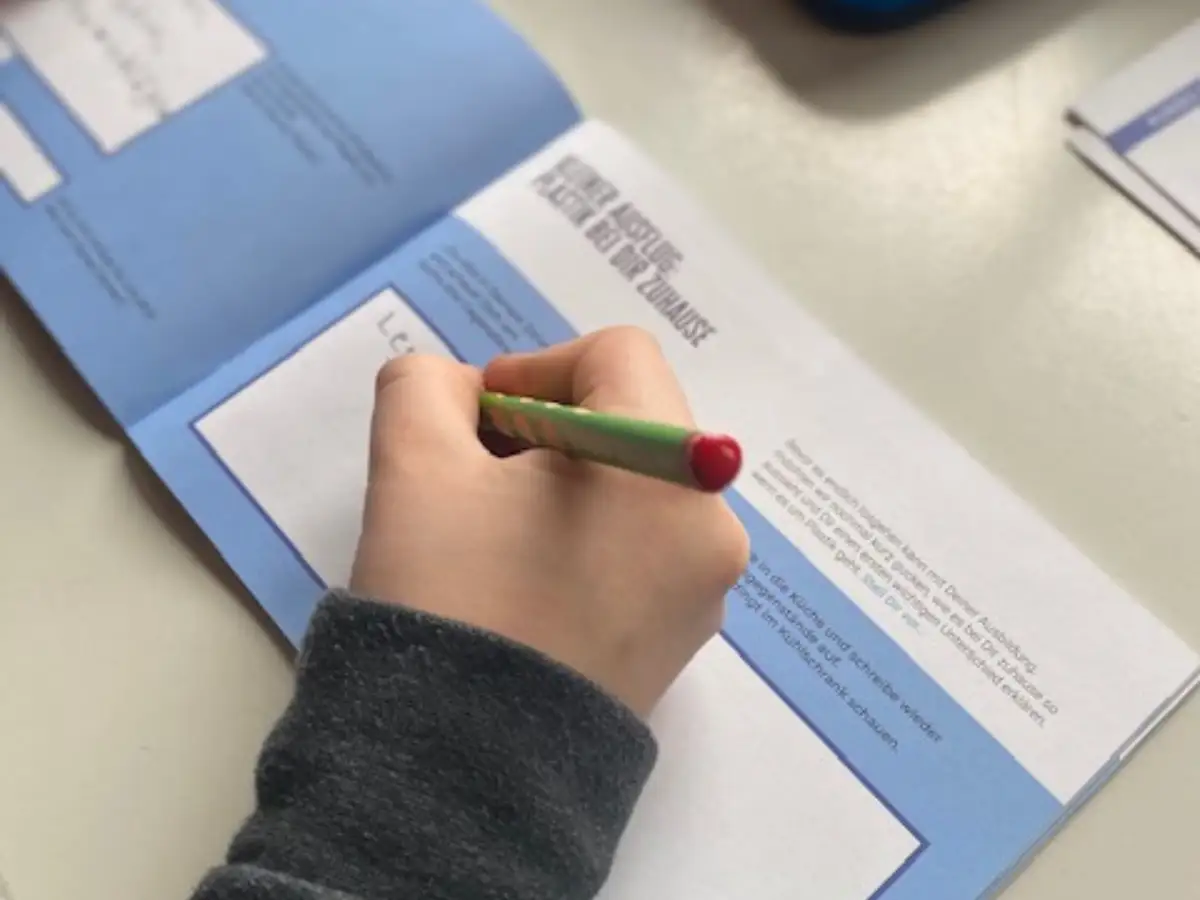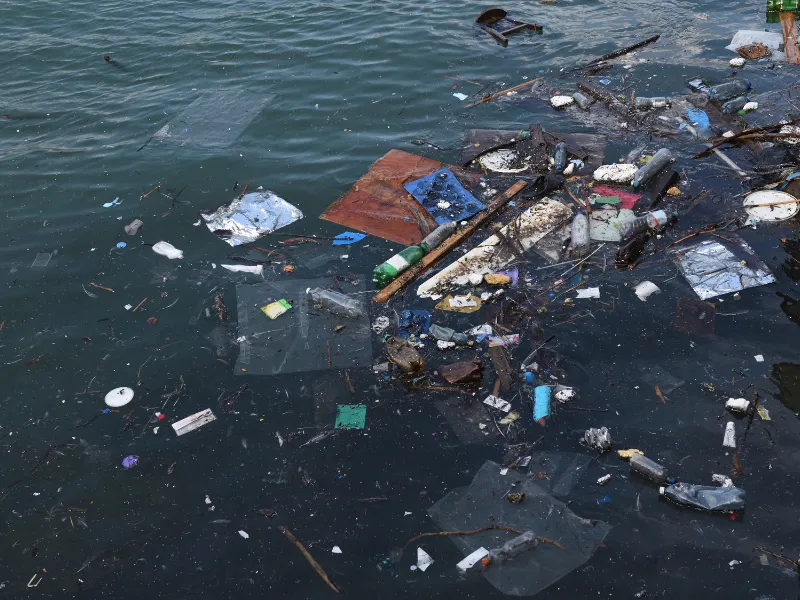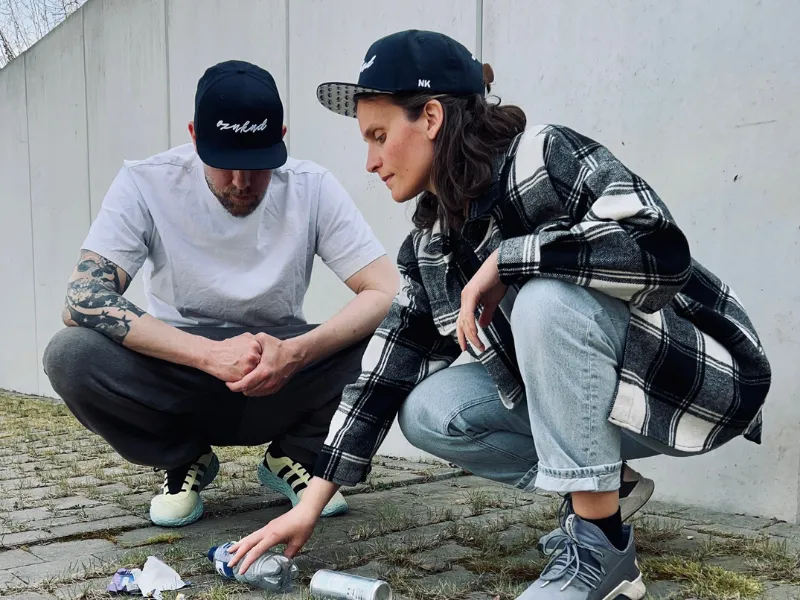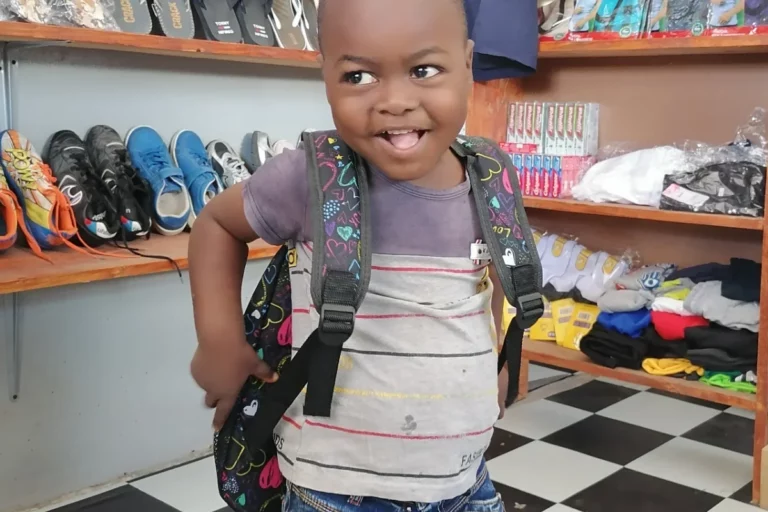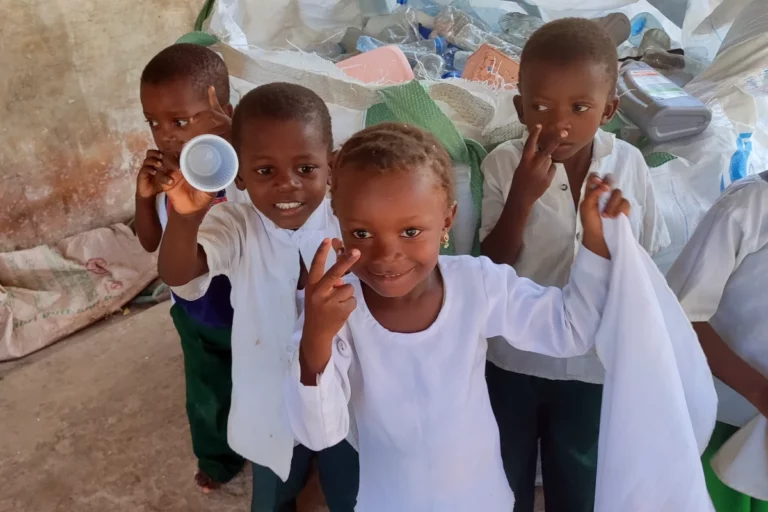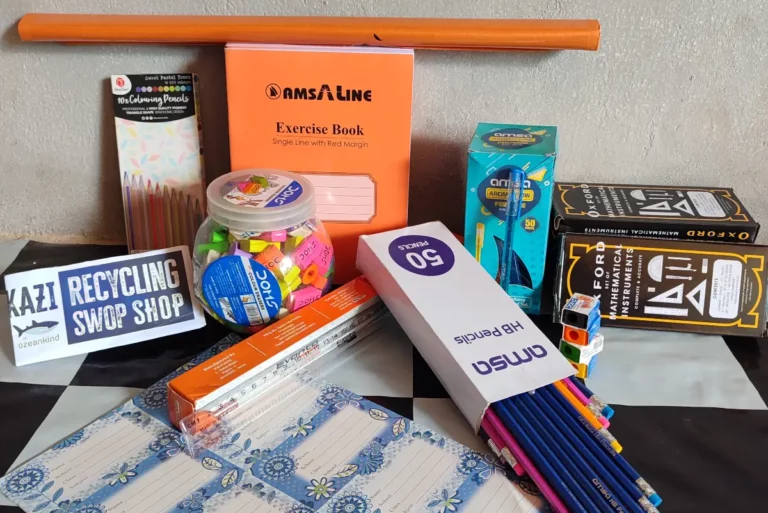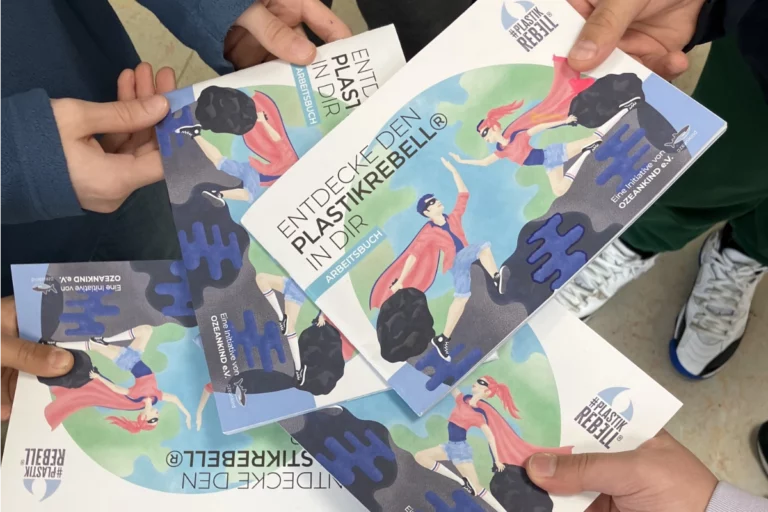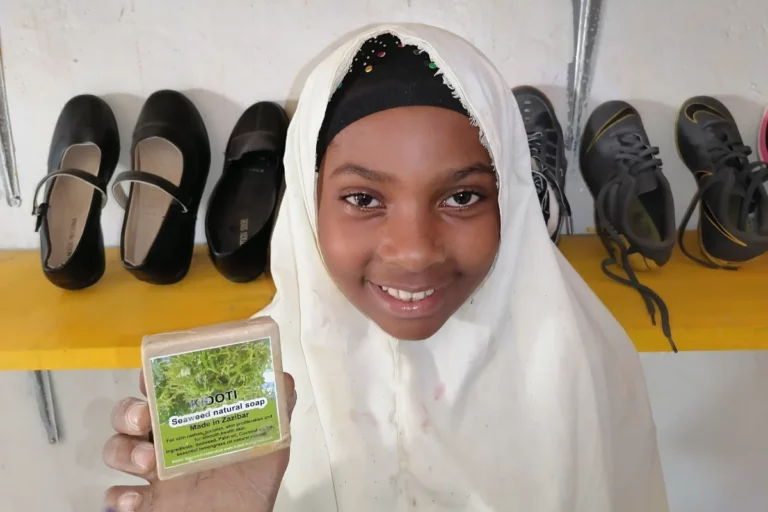Gibt es plastikfressende Bakterien im Meer?
Willkommen zu einer neuen spannenden & sehr wissenschaftlichen Folge. Wir haben heute Rebecka Molitor zu Gast. Sie ist Doktorandin an der Heinrich-Heine-Universität Düsseldorf im Institut für Molekulare Enzymtechnologie im Forschungszentrum Jülich. Sie arbeitet bereits seit drei Jahren an der Erforschung von Enzymen und Bakterien aus dem Meer, die Verbindungen spalten können, welche auch in manchen Plastikarten vorkommen.
Du erfährst in dieser Folge:
- Wie ist die aktuelle Situation im Meer bzgl. Plastikmüll?
- Was wird untersucht auf dem Forschungsschiff SONNE? Mit welchem Ziel?
- Was passiert eigentlich genau mit dem Müll im Meer?
- Wie kommt es überhaupt zu den Müllstrudeln und was hat unser persönliches Müllaufkommen an Land damit zu tun?
- Gibt es tatsächlich Tiefseeorganismen die Plastik zersetzen können?
- Kann z.B. das OceanCleanUp Projekt eine Lösung sein für die Müllstrudel?
Hier die ganze Folge anhören:
Sie sehen gerade einen Platzhalterinhalt von Standard. Um auf den eigentlichen Inhalt zuzugreifen, klicken Sie auf den Button unten. Bitte beachten Sie, dass dabei Daten an Drittanbieter weitergegeben werden.
INFO zur Cola Flasche aus Meeresmüll
Wie immer freuen wir uns, wenn Du nach dieser Folge bei uns auf Instagram vorbei schaust und Deine Gedanken mit uns teilst.
Wenn Dir diese Folge gefallen hat, freuen wir uns über Deine Bewertung bei itunes. Denn nur so wird unser Podcast auch weiteren Menschen angezeigt, die sich auch für Umweltthemen & Nachhaltigkeit interessieren.
Du kannst uns zusätzlich sogar eine Sprachnachricht schicken. Wir freuen uns auf Deine Meinung.
Bis zur nächsten Folge,
Marina & Micha
Quellen (nicht Barrierefrei):
Wayman, C., & Niemann, H. (2021). The fate of plastic in the ocean environment – a minireview. Environmental Science: Processes & Impacts. https://doi.org/10.1039/D0EM00446D
Ru, J., Huo, Y., & Yang, Y. (2020). Microbial Degradation and Valorization of Plastic Wastes. Frontiers in Microbiology, 11(April), 1–20. https://doi.org/10.3389/fmicb.2020.00442
Delacuvellerie, A., Cyriaque, V., Gobert, S., Benali, S., & Wattiez, R. (2019). The plastisphere in marine ecosystem hosts potential specific microbial degraders including Alcanivorax borkumensis as a key player for the low-density polyethylene degradation. Journal of Hazardous Materials, 380(July), 120899. https://doi.org/10.1016/j.jhazmat.2019.120899
Lear, G., Kingsbury, J. M., Franchini, S., Gambarini, V., Maday, S. D. M., Wallbank, J. A., Weaver, L., & Pantos, O. (2021). Plastics and the microbiome: impacts and solutions. Environmental Microbiome, 16(1), 2. https://doi.org/10.1186/s40793-020-00371-w
Tirelli, V., Sebille, E. Van, Aliani, S., Law, K. L., Maximenko, N., Alsina, J. M., Bagaev, A., Bergmann, M., Chapron, B., Chubarenko, I., & Cózar, A. (2020). The physical oceanography of the transport of floating marine debris Recent citations The physical oceanography of the transport of floating marine debris. Environmental Research Letters, 15.
Kane, I. A., Clare, M. A., Miramontes, E., Wogelius, R., Rothwell, J. J., Garreau, P., & Pohl, F. (2020). Seafloor microplastic hotspots controlled by deep-sea circulation. Science (New York, N.Y.), 368(6495), 1140–1145. https://doi.org/10.1126/science.aba5899
Urbanek, A. K., Rymowicz, W., & Mirończuk, A. M. (2018). Degradation of plastics and plastic-degrading bacteria in cold marine habitats. Applied Microbiology and Biotechnology, 102(18), 7669–7678. https://doi.org/10.1007/s00253-018-9195-y
Wei, R., & Zimmermann, W. (2017). Biocatalysis as a green route for recycling the recalcitrant plastic polyethylene terephthalate. Microbial Biotechnology, 10(6), 1302–1307. https://doi.org/10.1111/1751-7915.12714
Syranidou, E., Karkanorachaki, K., Amorotti, F., Avgeropoulos, A., Kolvenbach, B., Zhou, N. Y., Fava, F., Corvini, P. F. X., & Kalogerakis, N. (2019). Biodegradation of mixture of plastic films by tailored marine consortia. Journal of Hazardous Materials, 375(January), 33–42. https://doi.org/10.1016/j.jhazmat.2019.04.078
Lebreton, L., Slat, B., Ferrari, F., Sainte-Rose, B., Aitken, J., Marthouse, R., Hajbane, S., Cunsolo, S., Schwarz, A., Levivier, A., Noble, K., Debeljak, P., Maral, H., Schoeneich-Argent, R., Brambini, R., & Reisser, J. (2018). Evidence that the Great Pacific Garbage Patch is rapidly accumulating plastic. Scientific Reports, 8(1), 4666. https://doi.org/10.1038/s41598-018-22939-w
Wierckx, N., Prieto, M. A., Pomposiello, P., Lorenzo, V., O’Connor, K., & Blank, L. M. (2015). Plastic waste as a novel substrate for industrial biotechnology. Microbial Biotechnology, 8(6), 900–903. https://doi.org/10.1111/1751-7915.1231


